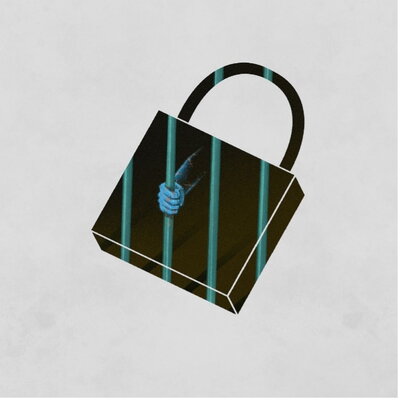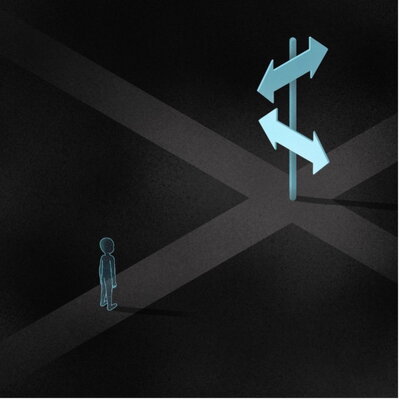On Tuesday September 5, 2023, Professor Liat Ben-Moshe (University of Illinois, Chicago) delivered a lecture in the Modern Critical Theory lecture series for the Unit for Criticism and Interpretive Theory at the University of Illinois, Urbana-Champaign. Her talk was titled “Decarcerating Disability: Prison Abolition and Deinstitutionalization.” Quoted content is from the lecture unless noted otherwise. All images are by 愚木混株 Cdd20 from Pixabay.
Liat Ben-Moshe’s Modern Critical Theory lecture was a master class in public scholarship rooted in abolition and reclamation of disabled culture. Broadly construed, her lecture examined the construction of disability, made explicit the interconnectedness of disability, madness, and carcerality, and demanded that we face up to the consequences of continuing to isolate disability from the issue of mass incarceration.
Ben-Moshe’s lecture began with a call for scholars of critical prison studies and scholars of disability to understand the connection between incarceration and (mostly anti-Black) racism, colonialism, and racial capitalism and to become much more well-versed in the lived experiences and history of mad, disabled, and deaf people and culture. As a social construct, Ben-Moshe made clear that the meaning of disability and madness is not located in bodies or minds but rather derived from historical, cultural, political, and economic structures of human life.
Important to Ben-Moshe’s task of tracing the connection between disability and carcerality is a broadened notion of carcerality. Carcerality usually refers to incarceration and prisons, but Ben-Moshe argued that institutions for those labeled as intellectually, developmentally, or psychiatrically disabled are also carceral. Two theoretical frameworks for analyzing incarceration (feminist abolition and mad/crip of color analysis) and two reclaimed terms (“mad” and “crip”) are crucial resources for Ben-Moshe’s account of decarcerating disability. She said: “Feminist abolitionism helps us to see the connection between state violence and interpersonal violence [while] ‘mad/crip (of color) critique’ comes from Robert McRuer and is a category of analysis that spins mainstream representations or practices to reveal the able-bodied assumptions and exclusionary effects therein. Something that connects feminist abolition and mad of color analysis is that incarceration is a core structure that shapes social relationships in society, not just for people who are affected but for everybody. The fact that we have prisons and psychiatric institutions and put people there for life and think [that’s] completely common sense and neutral shapes our relationships to each other and shapes our notions of humanity and worthiness.”

A highlight of Ben-Moshe’s argument was her rejection of the idea of prison abolition as an unrealistic, utopian vision and she did this by pointing to the deinstitutionalization movement which arose in the 1960s. Traditionally, “deinstitutionalization” captured the process or transition of disabled people from state institutions and hospitals into community living. Ben-Moshe’s addition to that traditional “process” conception is that deinstitutionalization is also a movement and a mindset. “As a mindset, it is anti-carceral [and] anti-segregation – it’s a logic.” So, importantly, she pointed out that people actually fought for the closure of psychiatric institutions and those institutions then began to close down en masse, proving that deinstitutionalization is not a futuristic dream but something that has actually been happening.
Central to “Decarcerating Disability” was Ben-Moshe’s notion of “disepistemology.” Where epistemology helps us to know about knowing, disepistemology nudges us to release some orthodox commitments of knowing to make way for the kind of imaginative and forward thinking required to abolish carcerality. The standard of epistemic certainty that the academy instills in us, for example, requires that we should only believe those things which we have no rational grounds for doubting. Disepistemology shows us that, when it comes to abolition and deinstitutionalization, that standard of certainty is not only impossible but places constraints on the project of envisioning and building a better future. One of the main questions abolitionists field is what will we do about the people who have committed heinous wrongs? It may terrify us that a common abolitionist reply is, “We don’t know.” Note, however, that that not knowing expresses something different than we might expect. That not knowing does not represent a defeated impasse, rather it signals that the project of abolition does not have a clear and predefined path to success.

In so many cases, setting a goal without a clear plan is imprudent, but Ben-Moshe reminds us that there was life before over-punishment and the prison industrial complex. Humans have done many things without certainty, and, rather than using this point to undermine the project of abolition, we could come to see the lack of certainty as an opportunity for truly inclusive collaboration. The idea of truly inclusive collaboration was at the forefront of my mind during Ben-Moshe’s lecture because her notion of disepistemology also urges us to stop looking for experts and leaders. The idea that any one person holds the key to eradicating carceral logics makes it so easy to get stuck being a bystander, making it possible for people to love abolition without abolishing anything at all. According to Ben-Moshe, we need to let go of expertise and stop waiting for someone else to tell us what to do.
The idea of letting go of expertise stayed with me, and I was fortunate to continue discussing this point with Ben-Moshe. I entirely agree that abolitionism does not get off the ground if we wait around for people to tell us how to do it. However, an alternative to letting go of expertise is to adopt an expanded notion of expertise and I think this expanded notion fits nicely in Ben-Moshe’s framework. Central to her view is the reclamation of a full picture of humanity wherein disability is not a deficit, and wherein our identities are cultural and political categories that capture our worldviews. In light of that, we can still resist traditional top-down power dynamics without letting go of expertise altogether. We only need to consider ourselves experts of our own lives.